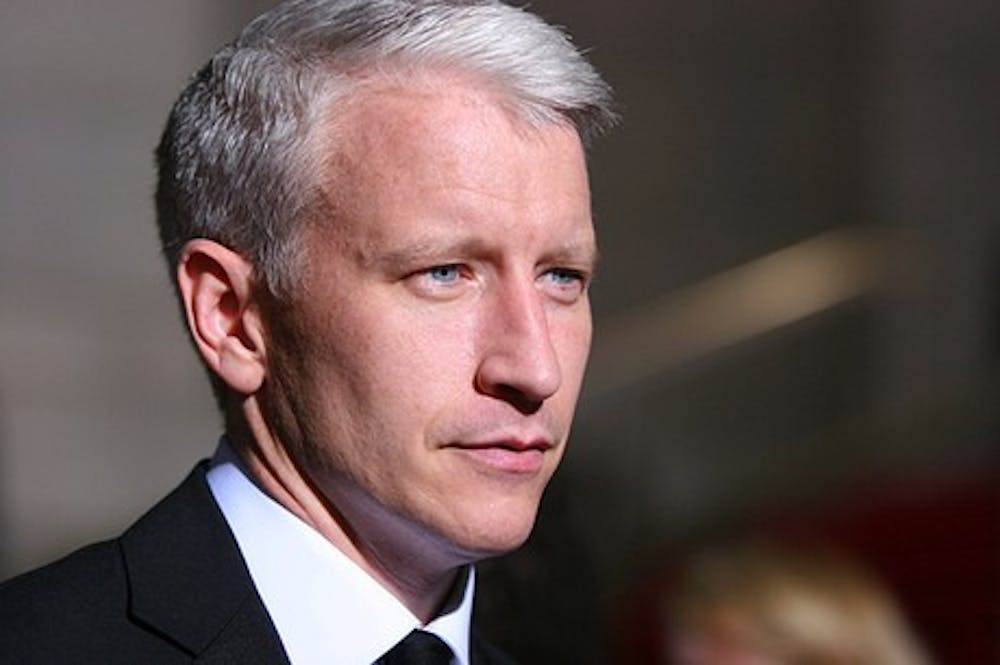Going into Anderson Cooper's speech, I was a bit hesitant to let my expectations run wild. He is, after all, a highly public figure whose reputation always precedes him, but he's also a television broadcaster who came in on a private jet. Sure, he's always performed magnificently, but that inner cynic kept on poking with hints that maybe he's allowed his celebrity to blunt his message.
This is the part where a writer typically goes, "Luckily, Cooper failed to disappoint," but to say that seems to attribute his success on the podium and in the field not to his own intellect and will but to sheer chance. His speech, equally grisly and hilarious, was the product not of odds or a mere satisfaction of expectations. It was, instead, an inspiring and carefully-constructed gambit that felt off-the-cuff and unrestrained.
Seeing Leo shift about in his seat while Cooper talked about the depravity of the atrocities that he's borne witness to across the world was strangely satisfying at a school such as Elon, where the meticulous upkeep of a rosy image seems to take a high priority (it was even more satisfying to hear a student praise Dr. Ocek Eke for trying to instill the same beliefs Cooper is heralded for, and to point out Elon's inept decision to deny him tenure in such a crowded arena.)
There were the expected jabs at politicians (and quite a few at broadcast folks as well), and the feel-good story for any bewildered college student of how Cooper came to graduation not knowing what to do with himself and now, through force of will, has become an international paragon of journalistic excellence. But there was a darker current running beneath the speech, persistent reminders of the fragility of human life and the importance of its appreciation.
"Everything can fall apart and everything will," Cooper said, summarizing a point touched upon earlier when he reminded the audience that in the case of a disaster, they could be in the same position that those suffering in New Orleans during Hurricane Katrina endured.
Ultimately, the point of Cooper's speech was to highlight the universality of human suffering and the indignities that run rampant across the globe. The image of anonymous bodies rotting unnoticed in the sun came about several times throughout the speech, and they in part give life to Cooper's own mission of bearing witness to both joy and torment so that people's stories may be heard. Mortality, Cooper reassured the audience, may limit what we can do, but it creates the importance of life on both a grand and small scale.
Being able to realize that the world doesn't end at the coasts, when the news broadcasts end for the evening or when we find ourselves in the comforts of luxury, that the global human experience is a tale of despair and from that despair is born the triumph that gives birth to life even from the corpses of the slain, the malnourished and privileged alike.


